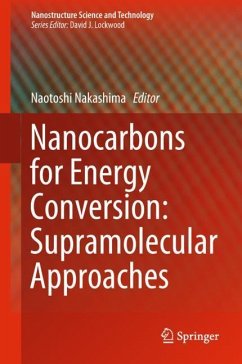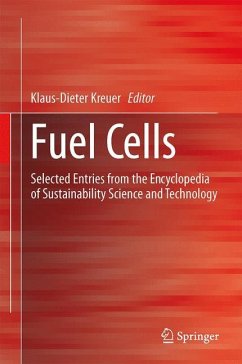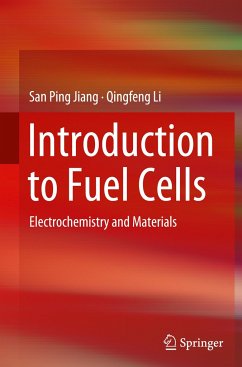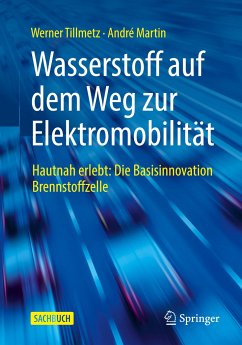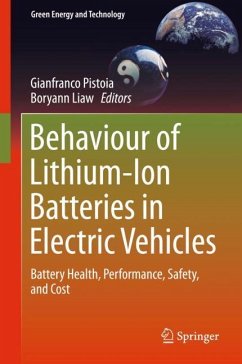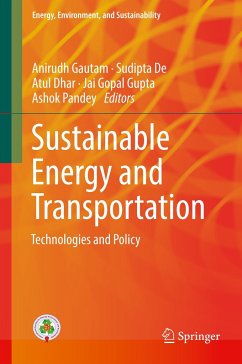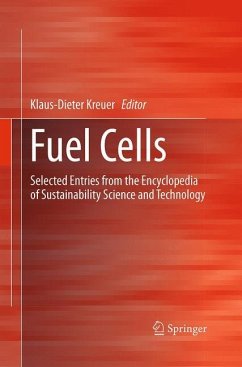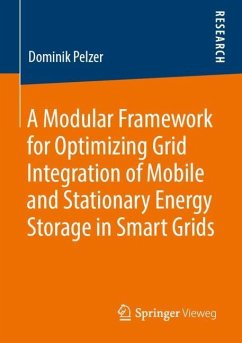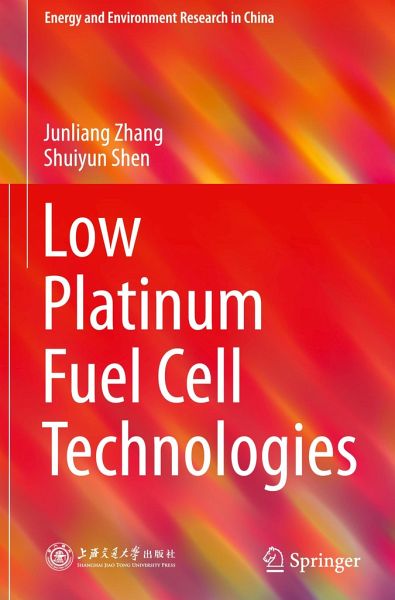
Low Platinum Fuel Cell Technologies

PAYBACK Punkte
38 °P sammeln!
This book introduces readers to the fundamental physics and chemistry of the proton exchange membrane fuel cell (PEMFC), followed by discussions on recent advances in low platinum electrocatalysis and related catalyst development for PEMFC (the book's primary focus), methods of membrane electrode assembly (MEA) fabrication for low platinum catalysts, and durability issues in connection with MEA.While energy and environmental issues are becoming the two main subjects in global sustainable development, the proton exchange membrane fuel cell (PEMFC), a clean and efficient new energy technology, h...
This book introduces readers to the fundamental physics and chemistry of the proton exchange membrane fuel cell (PEMFC), followed by discussions on recent advances in low platinum electrocatalysis and related catalyst development for PEMFC (the book's primary focus), methods of membrane electrode assembly (MEA) fabrication for low platinum catalysts, and durability issues in connection with MEA.
While energy and environmental issues are becoming the two main subjects in global sustainable development, the proton exchange membrane fuel cell (PEMFC), a clean and efficient new energy technology, has attracted more and more attention in recent years The major hurdle for more extensive applications of the PEMFC, especially for the automotive sector, is the high platinum loading requirement. Readers will gain a comprehensive understanding of the fundamentals and methods of low platinum PEMFC. This book is intended for researchers, engineers and graduate students in the fields of new energy technology, the fuel cell vehicle industry and fuel cell design.
While energy and environmental issues are becoming the two main subjects in global sustainable development, the proton exchange membrane fuel cell (PEMFC), a clean and efficient new energy technology, has attracted more and more attention in recent years The major hurdle for more extensive applications of the PEMFC, especially for the automotive sector, is the high platinum loading requirement. Readers will gain a comprehensive understanding of the fundamentals and methods of low platinum PEMFC. This book is intended for researchers, engineers and graduate students in the fields of new energy technology, the fuel cell vehicle industry and fuel cell design.





